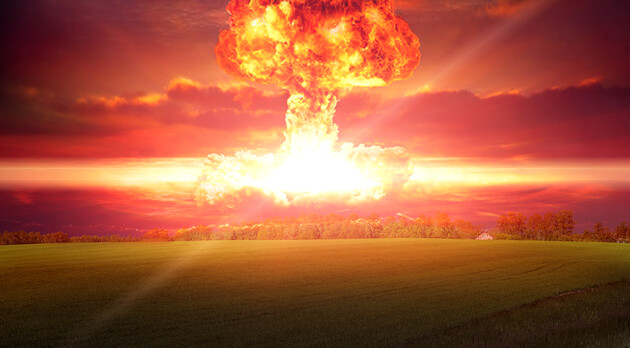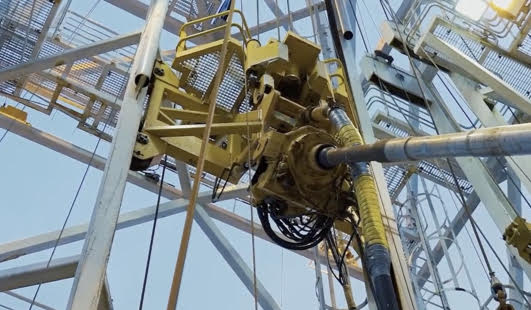Oleksii Plotnikov, PhD, International Judiciary
The legal nature of the sanctions associated with the attempted annexation of Crimea is multifaceted.Weak understanding its specifics makes difficult to achieve the strengthening and prolongation ofsanctions, as well as their effective implementation.
On Monday 4 of October, information appeared that the ambassadors of the EU member statesagreed to expand the sanctions list against those involved in undermining the territorial integrity ofUkraine. Reportedly, it included “judges”, working in the occupied Crimea. [1] Such news comesregularly, and the word “sanctions” is firmly embedded in the Ukrainian political lexicon. This worddenotes such different measures, introduced under such different procedures, that it is easy to getconfused. However, let’s try to figure out what is meant by the Crimean sanctions, and what theirapplication means in practice.
One can recall from the legal theory, that a sanction is an element of a legal norm that establishes thenegative consequences that occur for violations of this norm. A fine for a traffic violation is precisely asanction. Sanctions exist in all branches of law, including international law. The key difference is thatin national law the sanction is implemented by the state, which is the only supreme arbiter inrelations between people, while in international law there is no such supreme arbiter. Sanctions canonly be discussed within the framework of international organizations, when the highest governingbody of the organization can apply certain negative measures to the violating state under the law ofthis organization.
Such sanctions can be imposed by the UN Security Council on a state that violates international peaceand order. For example, until 2020, there existed an embargo on arms supplies to Iran, imposed bythe UN Security Council. It represented a sanction. After 2020, some states decided to keep the banon their own initiative. Such unilateral actions, from the point of view of the theory of internationallaw, are no longer sanctions, but retortions, that is, unfriendly, but legitimate actions of one state against another state, as a rule, aimed at prompting such a state to stop the behaviour that the firststate considers illegal.
Retortions, in turn, should not be confused with countermeasures, which are legitimate actions by astate suffering from a violation of international law to force the offending state to cease the violation.For example, Ukraine can use countermeasures against Russia, since it suffers from Russia’s illegalbehaviour. In addition, it is important that sanctions, countermeasures, retortions, etc. are applied bystates in relation to other states or their representatives, and not in relation to individuals.
Such an excursion into the theory of international law was necessary in order to convey to the readerthe understanding that what is usually called sanctions are in fact a variety of procedures with verydifferent grounds for application and degree of validity. The word “sanctions” can be understood asmeasures of some states against other states based on international law, and measures of apredominantly political nature.
It should be noted that, as such, international legal sanctions in connection with the occupation ofCrimea have never been applied. They can only be introduced by the UN Security Council whereRussia veto power making the introduction of sanctions practically impossible. What is called“Crimean sanctions” is actually a set of measures that are applied by individual states (for example,the United States) and regional interstate associations (like the European Union). Of such measures,the closest thing to sanctions in the international legal sense is the sanctions of the European Union.They are of the greatest practical importance.
Why did the European Union apply what is known as the “Crimean sanctions”? The attemptedannexation of Crimea did not affect the territories of the EU member states, and none of themsuffered from the unfriendly actions of Russia. The answer lies in the so-called common foreign andsecurity policy of the EU, which provides for the creation of an area of stability and security at theborders of the EU. This policy involves conducting joint operations with neighbouring countries thatadhere to the principles of international law and democracy, along with a negative impact oncountries that violate international law, the principles of democracy, the rule of law and human rights.The EU defines such impact as sanctions of a diplomatic or economic nature [2].
Angela Merkel described the goals of the Crimean sanctions very frankly: “The restrictive measuresagainst Moscow will be lifted when the reason why they were introduced disappears. The attemptedannexation of Crimea is, in fact, not just an annexation. This is a violation of the values, thanks towhich the European world order was created after the end of the Second World War, namely, therecognition of borders and respect for territorial integrity” [3]. Therefore, by applying sanctionsagainst the state, which by its aggression created a dangerous case of attempted annexation for thefirst time since 1945, the EU protects not only and not so much Ukraine, but itself, its borders, andthe principles on which it is based.
The first sanctions against individuals, who were involved in the occupation of Crimea by Russia, wereintroduced by the EU in March 2014. They touched upon the self-proclaimed leaders of the Russianoccupation “authorities” in Crimea and individual Russian politicians who contributed to theoccupation of the peninsula. These sanctions were of a diplomatic nature and were directed againstspecific individuals, however, as such, they did not yet harm the aggressor state directly.
Of much greater practical importance were the so-called sectoral sanctions, the introduction of whichwas largely facilitated by the destruction of the MH17 flight. These sanctions included a ban on thesale of weapons and materials necessary for their manufacture, a ban or restriction on the supply of a number of technologies, and a ban on the access of a number of Russian banks to European markets.In 2014-2017, the imposition of the sanctions was constantly supplemented and expanded.
Within the framework of this essay, it is impossible to describe all the imposition of the EU sanctions.Much more interesting is how the aggressor state is trying to cancel or at least bypass the EUsanctions. This can be illustrated by the examples of the case in the EU court one the claim of theRussian “Rosneft”, and the claim of “Siemens” in the Russian arbitration court.
“Rosneft” applied to the High Court of England and Wales against the actions of the United Kingdomin accordance with the decision of the EU Council of July 31, 2014, according to which Russiancompanies lost access to financial instruments of the EU countries. The British court decided that thecase involved interpretation of EU law and referred the case to the European Court of Justice. Thelatter confirmed the validity of the EU decision and its direct effect on the territory of the EU memberstates. In particular, it stressed that the decision of the EU Council should be considered as prohibitingcompanies registered in an EU member state from concluding agreements with companies fromcountries against which the EU applies sanctions [4].
An opposite example is the application of “Siemens Gas Turbine Technologies” LLC to the MoscowArbitration Court with a claim against “Techpromexport” LLC (both legal entities registered under thelaws of the Russian Federation) to invalidate the contract for the supply of gas turbine equipmentconcluded under the influence of deception. The fact is that the Russian Siemens was a subsidiary ofthe German “Siemens” AG, which was supposed to operate in accordance with EU law. The turbines,allegedly supplied for use on the territory of Russia, were used by the Russian customer company inCrimea in violation of European sanctions. That is, in fact, there was a delivery of prohibited high-techgoods to Crimea through a formally Russian intermediary firm. At the same time, the GermanSiemens itself was not going to violate the EU sanctions.
The Russian court did not find a violation. In its opinion, the Crimea and Sevastopol were allegedly“part of the Russian Federation”, in which “EU law does not apply”, and any restrictions on the supplyof goods to these territories can be allegedly “established by Russian law only”.
The decision of the Russian arbitration court clearly demonstrated that European high-techcompanies, in principle, should not deal with Russian counterparties, since on the one hand, the EUdecision on sanctions is binding on legal entities registered in European countries, and on the otherhand, it is impossible to bring to justice a Russian company that violates European sanctions, in aRussian court. However, compliance with the sanctions regime depends primarily on the good faith ofEuropean companies. The European Union itself does not have the capacity to enforce its sanctions incases of the use of intermediary firms.
Moreover, as the “ARC” previously wrote German “Siemens” turbines did end up in the Crimea again,and our attempts to draw the attention of EU authorities to a clear violation of the sanctions regimehave not yet been too fruitful [6].
Unfortunately, non-EU states and organizations registered outside the EU have little opportunity touse the European legal mechanisms against violators. We can only hope for publicity, diplo
maticpressure, and ultimately on the conscience of European officials and businessmen, for whom theconduct of a joint foreign policy to protect human rights and democracy should be more importantthan profit.
It is also worth noting the current attempts by Russia and its friendly authoritarian regimes todiscredit the very concept of sanctions on international political and legal platforms. In particular, theimportance of mechanism of the UN Special Rapporteurs on the negative impact of the unilateralcoercive measures on the enjoyment of human rights, established in 2014, which should develop UNapproaches to assessing the current practical situation with sanctions, cannot be ignored. It isnoteworthy that the regimes of communist China, Iran, Cuba, Russia, Syria, Venezuela, Zimbabwe [8]as well as the “independent non-governmental structures” of these countries [9], were willing tocomment on the Special Rapporteur’s report to the UN Human Rights Council. At the same time, theEU stated in its communication to the UN Special Rapporteur that restrictive measures the EUimposes autonomously comply with international law, including with the obligations stemming frominternational human rights law, international humanitarian law, and international refugee law. Wherepersons and entities are targeted by sanctions, EU diplomats added, their fundamental rights arerespected, as required by the EU Treaties and the EU Charter of Fundamental Rights, including thedue process rights of the listed persons and entities, in accordance with the caselaw of the Court ofJustice of the European Union [10].
In turn, the ARC, in its submission to the Special Rapporteur on this issue, pointed to the sanctionspolicy of Ukraine since 2015 as a tool to minimize Russian aggression, counter the militarization of theCrimea, stop international crimes and systematic human rights violations on the peninsula, includingcombating oppression of indigenous peoples, ethnic, linguistic and religious groups [11]. The positionof the “ARC” for the UN Special Rapporteur posted on the UN web resources described the legal andorganizational sanctions procedures of Ukraine and outlined the prospects for improving the sanctionsmechanisms [12]. So far, the summary report of the UN Special Rapporteur on these issues is notpublicly available [13], but in the future we should expect increased lobbying by undemocratic stateson their own position on UN sanctions.
Sources:
- https://www.eurointegration.com.ua/news/2021/10/4/7128591/.
- https://eeas.europa.eu/topics/common-foreign-security-policy-cfsp/420/common-foreign-and-security-policy-cfsp_en.
- http://irbis-nbuv.gov.ua/cgi-bin/irbis64r_81/cgiirbis_64.exe?C21COM=2&I21DBN=UJRN&P21DBN=UJRN&Z21ID=&IMAGE_FILE_DOWNLOAD=1&Image_file_name=PDF/EkUk_2017_2_7.pdf.
- https://curia.europa.eu/jcms/upload/docs/application/pdf/2017-03/cp170034en.pdf.
- https://www.dw.com/ru/кассационные-жалобы-по-делу-о-крымских-турбинах-siemens-отклонены/a-44228916.
- https://arc.construction/13312.
- https://www.belta.by/interview/view/o-naznachenii-spetsdokladchikom-oon-i-negative-ot-sanktsij-v-uslovijah-pandemii-7255/.
- https://www.ohchr.org/EN/Issues/UCM/Pages/HRC48-report.aspx.
- https://www.ohchr.org/Documents/Issues/UCM/ReportHRC48/NGOs/submission-federation-trade-unions-belarus.pdf.
- https://www.ohchr.org/Documents/Issues/UCM/ReportHRC48/Other/submission-european-union.docx.
- https://arc.construction/12951.
- https://www.ohchr.org/Documents/Issues/UCM/ReportHRC48/NGOs/submission-association-of-reintegration-of-crimea.pdf.
- https://www.ohchr.org/EN/Issues/UCM/Pages/Reports.aspx.







